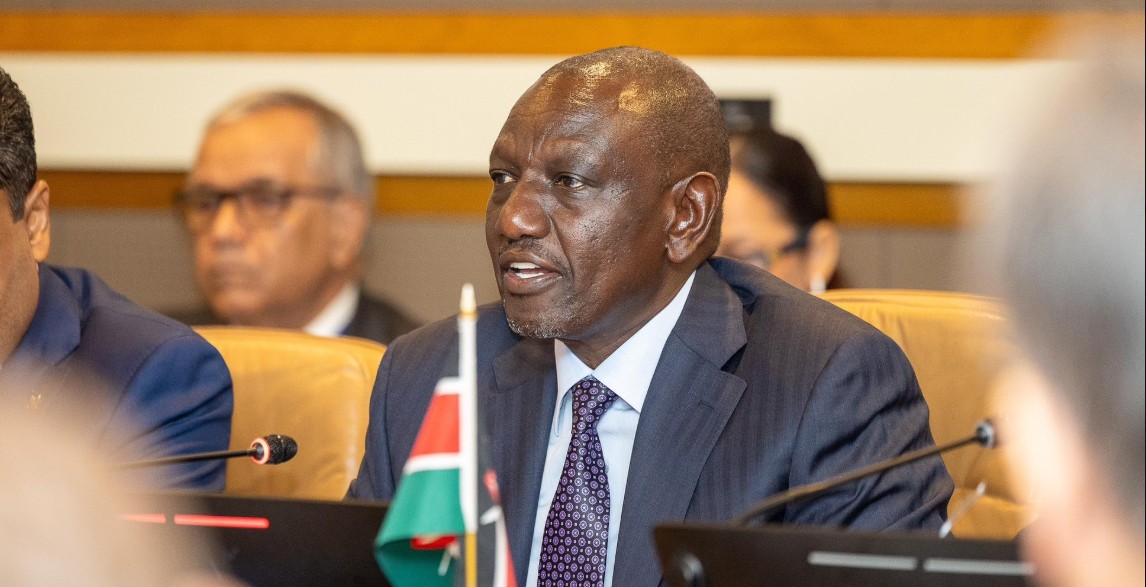President William Ruto has once again underlined Kenya’s determination to see its mission in Haiti through to a logical end. Speaking firmly on Kenya’s role in the Multinational Security Support Mission (MSS), Ruto stated that the country will not withdraw its forces until there is clarity on the transition of security and governance in Haiti. His position reflects not only Kenya’s commitment to global peacekeeping but also the delicate balance between international responsibility and national interest.
Kenya’s Bold Role in Haiti
Kenya took an unprecedented step in agreeing to lead the UN-backed multinational force in Haiti at a time when other nations were reluctant to commit. The Caribbean nation has been engulfed in turmoil, with gangs controlling much of the capital, Port-au-Prince, and public institutions paralyzed by violence. By sending its officers thousands of miles away, Kenya signaled that it was ready to play a central role in global peace and security beyond Africa.
Since deployment, Kenyan officers have contributed to significant progress on the ground. Reports indicate that gang networks have been weakened in some areas, humanitarian access has improved, and basic services such as schools and hospitals have begun reopening. However, the mission has faced serious constraints—limited funding, logistical challenges, and slow support from international donors.
The Question of Transition
It is against this backdrop that President Ruto insists Kenya cannot exit without a clearly defined transition plan. The concern is straightforward: a premature withdrawal could undo the modest gains made so far, plunging Haiti back into deeper chaos. Without clarity on who will assume responsibility after Kenya, the sacrifices of both Kenyan officers and Haitian civilians would be wasted.
Ruto has called on the United Nations and other international partners to outline the next steps for Haiti. He argues that the global community must decide how long the MSS mandate will last, how governance structures will be supported, and what resources will be committed to sustain security after foreign forces leave.
A Humanitarian and Moral Duty
For Ruto, the Haiti mission is not just a matter of politics or international diplomacy—it is a humanitarian obligation. He has consistently framed the mission as an act of solidarity with vulnerable populations, emphasizing that no nation should be left to face collapse alone. By taking up leadership in Haiti, Kenya has projected itself as a moral voice on the global stage, demonstrating that African countries can step forward where others hesitate.
The Challenges of Global Peacekeeping
Kenya’s stance also highlights the realities of modern peacekeeping. First, security missions require more than just boots on the ground—they need sustainable funding, equipment, and political will from the international community. Second, peacekeeping without a clear exit strategy risks creating cycles of dependency and instability. And third, smaller nations like Kenya cannot be left to shoulder disproportionately large responsibilities without adequate backing.
Looking Ahead
President Ruto’s firm words send a clear message: Kenya’s credibility and the future of Haiti’s recovery depend on a structured, well-planned transition. If the mission succeeds, it could strengthen Kenya’s reputation as a reliable peacekeeper and showcase Africa’s growing role in global affairs. If it fails, it could serve as a sobering reminder of how fragile international interventions can be when not properly supported.
Ultimately, Ruto’s insistence on clarity reflects a leadership style that balances ambition with caution. Kenya’s involvement in Haiti is a gamble on global solidarity, and whether it becomes a success story or a cautionary tale will depend on how the transition is managed in the coming months.



